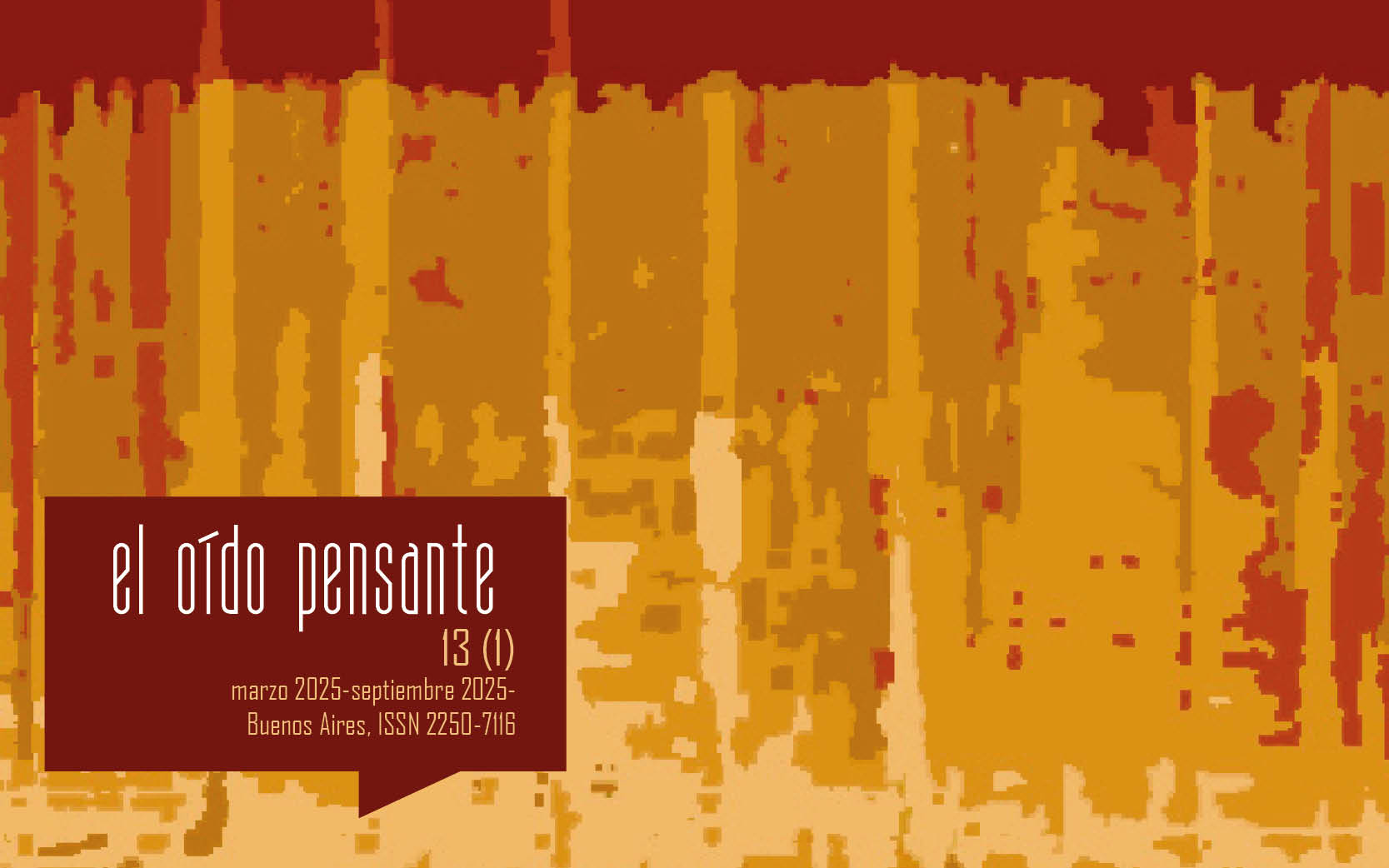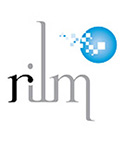Presence of Inclusion in Musical Education: Bibliometric Study
Abstract
The term inclusion, both in the social and educational spheres, refers to providing opportunities for individual development and social participation to people with diverse abilities, avoiding their exclusion. The high integrative value of music leads us to dedicate this bibliometric study with an objective that consists of analyzing the particularities of the research that links Musical Education and inclusion. Specialized authors and scientific journals with greater interest in the subject are presented. A search is carried out in the Web of Science database using exclusively the terms musical education and inclusion. 300 articles are obtained, 59 published in 2023; The journals with the greatest thematic interest are International Journal of Music Education, Music Educators Journal and Research Studies in Music Education. Spain occupies second place in published articles, with 54 publications, only surpassed by the United States (n=98). Limiting the search to 2020-2024, we reduced the corpus to 193 articles. We observe an increase in scientific production on this topic, it is considered a growing topic as we witness the increase in social and educational diversity.Downloads
References
Aparicio-Gervás, J.M. y León-Guerrero, M.M. (2017). La música como modelo de inclusión social en espacios educativos con alumnado gitano e inmigrante. Revista Complutense de Educación, 24(1), 35-52. DOI: https://doi.org/10.5209/RCED.54878
Aquino, K. (2020). Exploring postsecondary administrators’ inclusion of disability within their definition of student diversity. International Journal of Disability, Development and Education, 69(5), 1-8. DOI: https://doi.org/10.1080/1034912X.2020.1808951
Aria, M. y Cuccurullo, C. (2017). Bibliometrix: An R-tool for Comprehensive Science Mapping Analysis. Journal of Informetrics, 11(4), 959–975. DOI: https://doi.org/10.1016/j.joi.2017.08.007
Calderón, D. y Gustems, J. (2018). Análisis bibliométrico de la producción científica sobre educación musical en el periodo 2007–2016 en revistas incluidas en JCR. BiD: textos universitaris de biblioteconomia i documentació, 41. DOI: https://doi.org/10.1344/BiD2018.41.10
Claxton, G. (2001). Aprender, el reto del aprendizaje continuo. Barcelona: Paidós.
Costa-Tzin, J., Raudales-García, E. y Aguilar-Hernández, P. (2023). Aprendizaje inclusivo en la educación: Un análisis bibliométrico. Revista científica digital de Educación. Eduser 10(1), 64-77. DOI: https://doi.org/10.18050/eduser.v10n1a6
De Moya, M.V., Segura, A., Robles, M.V. y Bravo, R. (2023). Música, Tecnología y Redes Sociales: Hábitos y Beneficios [E-book]. En Artes y Salud. Calidad de vida en los entornos sociales y educativos (pp. 29-38). Madrid: Dykinson.
Del Valle, M., Segura, A. y Mariana, S. (2024). Costumbres musicales en redes sociales durante y tras el Gran Confinamiento. El oído pensante, 12(1), 152-175. DOI: https://doi.org/10.34096/oidopensante.v12n1.12272v
Donthu, N., Kumar, S., Mukherjee, D., Pandey, N. y Lim, W. M. (2021). How to conduct a bibliometric analysis: An overview and guidelines. Journal of Business Research, 133, 285-296. DOI: https://doi.org/10.1016/j.jbusres.2021.04.070
Escarbajal, A., Cárceles, J.C. e Izquierdo, T. (2023). La perspectiva del profesorado sobre el contexto escolar en educación inclusiva. Aula Abierta, 52(1), 15-22. DOI: https://doi.org/10.17811/rifie.49.3.2020
Fernández, A. (2021). Consumos musicales: Reflexiones de la historia de las mentalidades a la historia cultural. Revista de Ciencias Sociales, 27(4), 18-29. DOI: https://doi.org/10.31876/rcs.v27i4.37231
Flores-Fernández, C., y Aguilera-Eguía, R. (2020). Indicadores bibliométricos y su importancia en la investigación clínica. ¿Por qué conocerlos? Revista de la Sociedad Española del Dolor, 26(5), 315-316. DOI: http://dx.doi.org/10.20986/resed.2018.3659/2018
Fuentes, S. y Díaz, A. (2023). Aprender a escuchar, enseñar a entender: la democratización del análisis musical. El oído pensante, 11(2), 142-160. DOI: https://doi.org/10.34096/oidopensante.v11n2.12285
Galera, M. M. y Pérez, J. (2008). La investigación en Educación Musical en la base de datos ERIC. Revista Electrónica Europea de Música en la Educación, LÉEME, 22, 1-14. Recuperado de: https://shre.ink/rFlR
García-García, F. J., López-Torrijo, M., y Gozálvez, V. (2019). Educación Inclusiva para la Ciudadanía Europea: el doble itinerario. Aula Abierta, 48(2), 175-182. DOI: https://doi.org/10.17811/rifie.48.2.2019.175-182
García, J. D. (2019). Conocimientos en resonancia: hacia una epistemología de la escucha. El oído pensante, 7(2), 135-154. Recuperado de: http://revistascientificas.filo.uba.ar/index.php/oidopensante/article/view/7564
Ivanovi, L. y Ho, Y.S. (2019). Highly cited articles in the Education and Educational Research category in the Social Science Citation Index: a bibliometric analysis. Educational Review, 71(3), 277–286. DOI: https://doi.org/10.1080/00131911.2017.1415297
Lizama, O., Gil, F. y Rahmer, B. (2018). La Experiencia de la inclusión en la educación superior en Chile. Santiago de Chile: Editorial USACH.
Llorent, V. J., Zych, I. y Varo-Millán, J. C. (2020). University academic personnel’s vision of inclusive education in Spanish universities (Visión del profesorado sobre la educación inclusiva en la universidad en España). Culture and Education, 32(1), 147-181. DOI: https://doi.org/10.1080/11356405.2019.1705593
Marín, J.C. (2021). Bibliometría e indicadores no convencionales. Revista técnica de la Facultad de Ingeniería, Universidad del Zulia, 44(3), 139-140. DOI: https://doi.org/10.22209/rt.v44n3a00
Marín-Suelves, D. y Ramón-Llin, J. (2021). Educación física e inclusión: un estudio bibliométrico. Apunts. Educació Física i Esports, 143, 17-26. DOI: https://doi.org/10.5672/apunts.2014-0983.es.(2021/1).143.03
Morales, Á., Ortega, E., Conesa, E. y Ruiz-Esteban, C. (2017). Análisis bibliométrico de la producción científica en Educación Musical en España. Revista española de pedagogía, 268, 399–414. DOI: https://doi.org/10.22550/REP75-3-2017-07
Paraíso, R. (2015). Re-contextualizar Tradiciones y la construcción de identidades sociales a través de Música y Danza: Un fandango en Huetamo, Michoacán. Música oral del Sur, 12(12), 445-462. Recuperado de: https://www.centrodedocumentacionmusicaldeandalucia.es/ojs/index.php/mos/article/view/187/17-paraiso
Partida, J. M. (2020). La relación de sintonía mutua ante la contingencia sanitaria del Covid-19: un breve análisis fenomenológico sobre la música. Programa Universitario de estudios sobre Democracia, Justicia y Sociedad. México: Universidad de México. Recuperado de: https://shre.ink/DJUT
Payá, A. y Hernández, J. L. (2022). Redes y espacios de comunicación y colaboración científica para la Historia de la Educación. Consideraciones globales y análisis del caso de España. En J. L. Hernández Huerta et al. (Coord.), Connecting History of Education. Redes globales de comunicación y colaboración científica (pp. 21-59). Valencia: Tirant Humanidades.
Paz, L. y Ponjuán, G. (2022). Sociología del conocimiento, teoría de los campos y bibliometría. Telos: Revista de Estudios Interdisciplinarios en Ciencias Sociales, 24(1), 157-175. DOI: https://doi.org/10.36390/telos241.10
Pedraja-Rejas, L., Bernasconi, A., Rodríguez-Ponce, E. y Muñoz-Fritis, C. (2023). Inclusión en educación superior: Un análisis de tendencias desde la perspectiva bibliométrica. Estudios Pedagógicos, 49(2), 109-132. DOI: https://doi.org/10.4067/S0718-07052023000200109
Pedroza, L. (2015). Of Orchestras, Mythos, and the Idealization of Symphonic Practice: The Orquesta Sinfónica de Venezuela in the (Collateral) History of El Sistema. Latin American Music Review, 36(1), 68-93. DOI: http://dx.doi.org/10.7560/LAMR36103
Peralta, M., Frías, M. y Chaviano, O. (2015). Criterios, clasificaciones y tendencias de los indicadores bibliométricos en la evaluación de la ciencia. Revista Cubana de Información en Ciencias de la Salud, 26(3), 290-309.
Pérez-Aldeguer, S. (2014). La música como herramienta para desarrollar la competencia intercultural en el aula. Perfiles educativos, 36(145), 175-187. Recuperado de: https://cuts.top/B-9D
Pérez, M. A. y Fuentes, D. D. (2022). Análisis bibliométrico de la inclusión educativa de estudiantes sexualmente diversos en las instituciones de secundaria. Perspectivas, 7(22), 48–65. DOI: https://doi.org/10.26620/uniminuto.perspectivas.7.22.2022.48-65
Poort, I., Jansen, E. y Hofman, A. (2020). Does the group matter? Effects of trust, cultural diversity, and group formation on engagement in group work in higher education. Higher Education Research & Development, 41(2), 1-16. DOI: https://doi.org/10.1080/07294360.2020.1839024
Rancière, J. (2009). The Emancipated Spectator. Barcelona: Verso.
Rice, T. (2007). Reflection on Music and Identity in Ethnomusicology. Journal of the Serbian Academy of Sciences and Arts, 7, 17–37. DOI: http://dx.doi.org/10.2298/MUZ0707017R
Roda-Segarra, J., Payá-Rico, A. y Hernández-Huerta, J. L. (2023). La historia de la educación a través de las revistas especializadas: temáticas, producción científica y bibliometría (1961-2022). Social and Education History,12(1), 85-117. DOI: http://doi.org/10.17583/hse.11028
Sanahuja, A., Benet-Gil, A. y Nieto, R. (2020). Training on inclusion in higher education: prepared to work within the inclusive model? (Formación sobre inclusión en la educación superior: ¿preparados para trabajar desde el modelo inclusivo?). Culture and Education, 32(1), 78-105. DOI: https://doi.org/10.1080/11356405.2019.1705595
Segal, R. (2015). Myth. A Very Short Introduction. Oxford: Oxford University Press.
Tomás-Górriz, V. y Tomás-Casterá, V. (2018). La Bibliometría en la evaluación de la actividad científica. Hospital a Domicilio, 2(4), 145-163. DOI: http://doi.org/10.22585/hospdomic.v2i4.51
UNESCO (2016). Educación 2030. Declaración de Incheon y Marco de Acción para la realización del Objetivo de Desarrollo sostenible 4. Paris: UNESCO.
UNESCO (2021). Thinking higher and beyond. Perspectives on the futures of higher education to 2050. Paris: UNESCO.
Verhagen, F., Panigada, L. y Morales, R. (2016). El sistema Nacional de Orquestas y Coros Juveniles e Infantiles de Venezuela: un modelo pedagógico de inclusión social a través de la excelencia musical. Revista Internacional de Educación Musical, 4, 35-45. DOI: http://dx.doi.org/10.12967/RIEM-2016-4-p035-046
Vernia, A. (2021). Música y tecnología contra el Covid-19: un caso en personas mayores. Revista Prisma Social, 32, 244-261. Recuperado de: https://revistaprismasocial.es/article/view/4050
Wang, Q. y Waltman, L. (2016). Large-scale analysis of the accuracy of the journal classification systems of Web of Science and Scopus. Journal of Informetrics,10(2), 347-364. DOI: https://doi.org/10.1016/j.joi.2016.02.003























